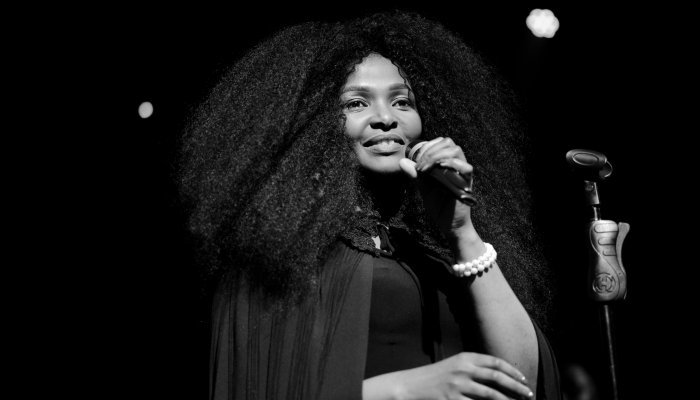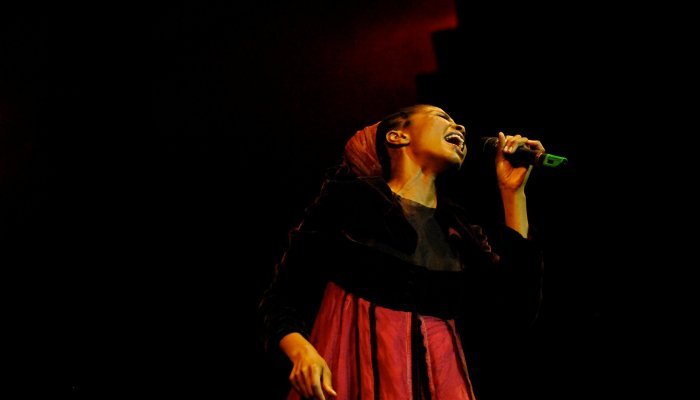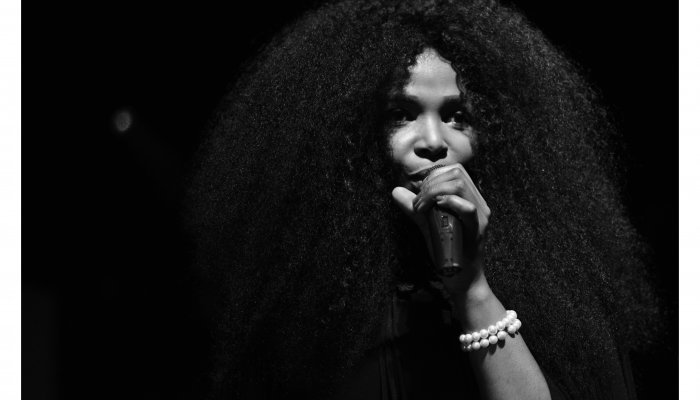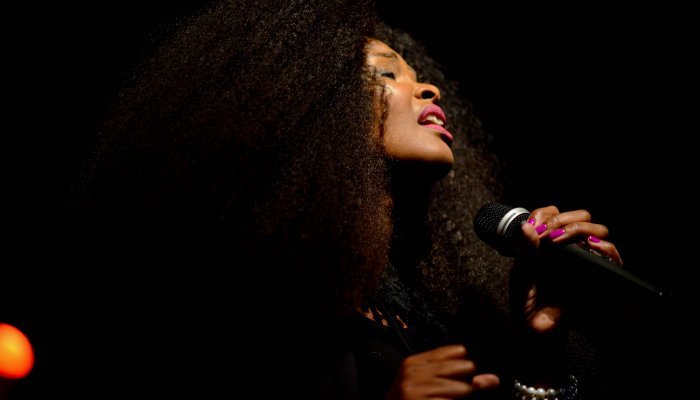Certain singers bring something completely new to the music. It may be the way they sing just slightly behind the beat, off key, or the way they make familiar lyrics sound new. One thing is certain: after you’ve heard them, it’s impossible to hear even the most familiar songs in the same way again. Simphiwe Dana belongs in this very small group which includes Nina Simone, Miriam Makeba, Carmen McRae, Shirley Horn & Sathima Bea Benjamin.
In the decade since releasing her first album, Simphiwe Dana has become one of the most forceful musicians in South Africa. While it was her debut album Zandisile that signalled a stuningly fresh voice, it was her second album Bantu Biko Street that showed her courage. She didn’t try to repeat what she’d done on the first album. This disappointed a lot of her fans and angered some critics who insist that artists should retain their ‘sound’.
But a decade is long enough to give a sense of perspective to an artist’s overall impact and Dana’s recent Ten Year gig in Johannesburg provided this. Since its move from Melville to Newtown, the Bassline has seen many important performances. Little wonder she chose this venue for the anniversary. On the night, the Bassline was so full you couldn’t move once Dana got on stage. There she was, regal in an all-black David Tlale outfit, her huge Afro resting proudly above her shoulders.
Every bit the rebel, Dana in performance switches her role to enchantress with a voice that can swing from barely a whisper to a fierce cry. She opened with Zandisile, a clear nod to her moment of arrival as a singer. Appropriately, next came Umthandazo (The Prayer) for at times this session was filled with a sense of reverence to the gods of music.
Dana is big on tracing the roots of her own history and the culture of her people. Nzinga/Flower Of The Nation was a tribute to Queen Nzinga, one of the most formidable figures in Southern Africa. Then the ballad Malaika reminded everyone present why she’s such a singular entertainer, capturing both the melancholy and declaration of love that has made this one of Africa’s greatest standards. She delivered the Swahili lyrics with such depth of emotion you could have sworn she was singing in her own language.
As she sang Mayine, it was clear that she was now fully possessed by the spirit of the music. Mayine is a great anthem, at once a celebration of rain and an invocation of whatever it is that brings the rain after a drought. On this one, Dana was cajoling, crying, praying and reveling; resplendent in her rich black gown, she looked like a modern day goddess casting a spell on the rapt audience.
A singer who always keep her eyes wide open to the world around her, Dana played Chibok, a song she composed for the Nigerian school girls who were abducted by Boko Haram. Here she was not only reminding us why she’s our own Nina Simone, but also asserting her deeply Pan African identity.
Just like Nina Simone who risked everything with Mississippi Goddam, Dana knows that songs like Marikana and Chibok confront uncomfortable realities. She will not hesitate to find the lyrics for the world’s deepest pain. Once inside the embrace of the song, you almost forget the anger as you sway to its rhythms.
Fittingly, she closed with the staple Ndiredi. This love song still retains the shock of its languid but irresistible lyrics when one first heard it on her debut album. Here was Dana on stage, singing, teasing, and smiling contentedly as her fans took in the meaning of ten years of her career.
In a world where starlets shine briefly and fade, Dana has shown that she is here to stay.









